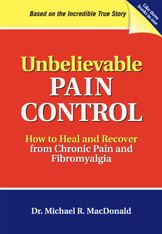
PAIN AND ANTI-DEPRESSANT MEDICATION – SOMETIMES IT’S THE HOW THAT COUNTS
Sometimes doctors are too quick to prescribe anti-depressant medication for people who suffer from chronic or long-term pain.
And sometimes it is this quickness that can cause trouble.
Anti-depressant medication can be helpful for anyone with a chronic injury or illness – especially if that injury or illness causes relentless pain. But the recommendation needs to be done in the right way.
First, the doctor needs to reassure their patient that the pain they experience is real physical pain. And that any depression they may feel is not the cause of their physical pain. (This step is useful for all treatment providers, not just medical ones.) When this step is not done carefully, many patients will feel that the doctor thinks that their pain is all in their head – and they will feel offended.
And then, most importantly, they will be reluctant to follow any of their doctor’s recommendations.
The next step is for the doctor to clarify that the anti-depressant medication is not designed to take away their pain. It would be very nice if it could, but that is very unlikely.
So, if this medication can’t take your pain away, what is the point. Well, the main point is that it can help a little in several indirect ways.
Here are some of the ways that it can help:
- If your long-term physical pain and related losses have made you depressed this medication can help. It can help even though it cannot take your pain or limitations away.
- Some anti-depressant medications can help you sleep. Better sleep will help you to cope and tolerate your physical pain better.
- Some anti-depressants can help you become less irritable and agitated when your pain flares up. This, in turn, will also help your family members who are trying to support you. More support will help you get through the toughest times.
Every little thing that can help you cope and survive long-term pain and loss is worth a try, in my opinion.
And doctors can help even more by paying close attention to how their recommendations are made.
* * *
Thank you for reading. Thank you to Humberto Chavez (image above) and Rachel Walker (image below, both from Unsplash) for your creative work. Please feel free to steal, share and join our growing list of subscribers.
AND, please spread the word using the hashtag #RealPhysicalPain with all your social media.
Mike




